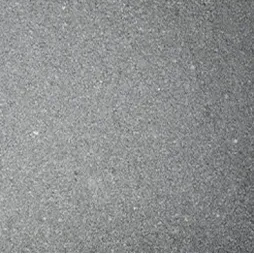What is the Purpose of Sealing Granite? How Long Does Granite Stay Sealed?
Granite, renowned for its stunning beauty and durability, is a popular choice for countertops, flooring, and various other applications in homes and businesses. However, to maintain its pristine appearance and protect it from stains and damage, sealing granite is essential. In this article, we'll delve into the purpose of sealing granite and explore how long you can expect granite to stay sealed.
Understanding the Purpose of Sealing Granite
The primary purpose of sealing granite is to provide a protective barrier against moisture, stains, and other potentially damaging substances. Despite its inherent strength and resistance to scratching, granite is a porous natural stone, meaning it can absorb liquids and oils if left unprotected. Sealing helps to fill in the tiny pores and fissures on the surface of the granite, reducing its absorbency and enhancing its resistance to stains.
By sealing granite countertops, floors, and other surfaces, you create a shield that repels water, oil, and other liquids, preventing them from penetrating the stone and causing discoloration or damage. Additionally, sealing can enhance the natural colors and patterns of the granite, giving it a richer, more vibrant appearance.
How Long Does Granite Stay Sealed?
The longevity of a granite seal depends on several factors, including the quality of the sealant used, the type of granite, and the level of wear and tear the surface experiences. In general, most sealants provide protection for one to three years before requiring reapplication.
However, it's essential to note that this timeframe is a guideline, and the actual duration may vary based on usage patterns and maintenance routines. High-traffic areas such as kitchen countertops may require more frequent sealing than less frequently used surfaces like bathroom vanities.
Real-Life Applications and Maintenance Tips
In real-life applications, sealing granite is crucial for preserving its beauty and longevity, especially in areas prone to spills and moisture exposure. Kitchen countertops, in particular, benefit from regular sealing to safeguard against food and beverage stains.
To ensure optimal performance and longevity of the seal, it's essential to follow proper maintenance practices. Clean spills promptly using a mild dish soap and water, avoiding harsh cleaners that can degrade the sealant. Use coasters or mats under glasses and hot pans to prevent scratches and heat damage to the granite surface.
Regularly inspect the granite for signs of wear and tear, such as water absorption or loss of shine, and reseal as needed to maintain maximum protection. Additionally, consider consulting with a professional stone care specialist for expert advice on sealing and maintaining your granite surfaces.
Conclusion
Sealing granite serves a crucial role in protecting this natural stone from stains, moisture, and other potential damage, preserving its beauty and functionality for years to come. By understanding the purpose of sealing and implementing proper maintenance practices, you can enjoy the timeless elegance of granite in your home or business with confidence.




